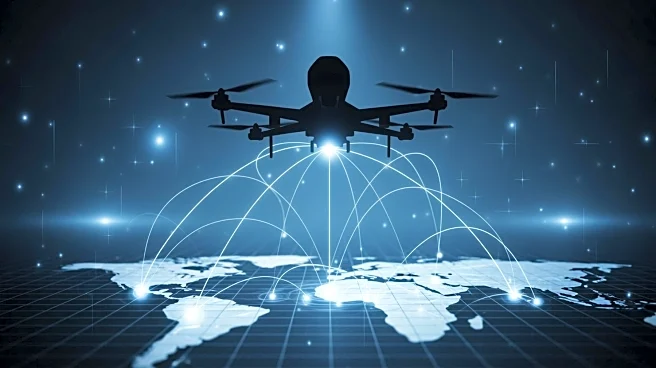What's Happening?
The Federal Reserve has initiated a series of interest rate cuts aimed at supporting the labor market, but these measures have not alleviated the difficulties faced by young Americans with computer science degrees in securing employment. Despite the Fed's
actions, companies across various industries, including technology, remain hesitant to hire due to ongoing economic uncertainties influenced by President Trump's trade policies. The structural impact of artificial intelligence (AI) on entry-level tech jobs further complicates the situation, as AI adoption leads to layoffs and reduced hiring plans. According to Fed Governor Christopher Waller, the disruption caused by AI is expected to increase, particularly affecting workers with college degrees. The labor market remains stagnant, with businesses struggling to make hiring decisions amidst high economic uncertainty.
Why It's Important?
The challenges faced by young tech workers highlight significant shifts in the U.S. labor market, particularly within the technology sector. The adoption of AI is transforming job roles, leading to a mismatch between the skills of new graduates and the demand for entry-level positions. This situation poses risks to the economic stability of recent graduates who anticipated lucrative careers in technology. The Fed's rate cuts, while intended to stimulate hiring, do not address the supply-side issues created by AI and trade policy uncertainties. As businesses navigate these changes, the broader implications for workforce development and economic growth are profound, potentially affecting the future of tech education and employment strategies.
What's Next?
The ongoing evolution of U.S. trade policy under President Trump continues to create uncertainty for businesses, impacting their hiring strategies. As AI technology further integrates into the workforce, companies may increasingly rely on automation, reducing the need for entry-level tech workers. The Fed is expected to continue rate cuts through 2026, but these measures may not suffice to counteract the structural changes in the labor market. Policymakers and industry leaders must consider long-term strategies to address the skills mismatch and support workforce adaptation to technological advancements.
Beyond the Headlines
The rise of AI and its impact on employment raises ethical and cultural questions about the future of work. As automation replaces traditional roles, there is a need to reassess educational priorities and workforce training programs to align with emerging technologies. The shift also prompts discussions on the societal implications of AI, including job displacement and the potential widening of economic disparities. These developments may influence public policy and corporate responsibility in fostering inclusive growth and innovation.














